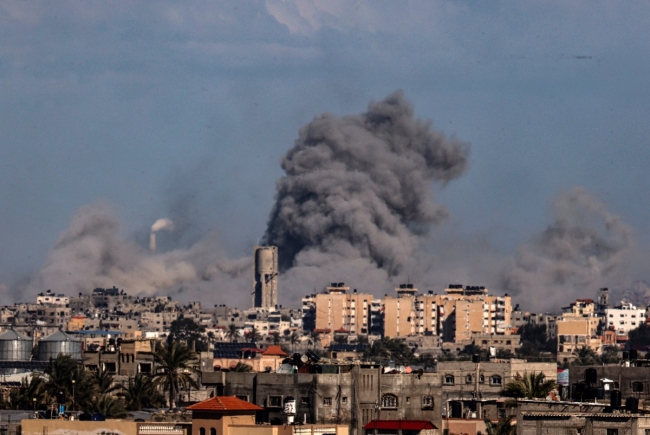Prominent Updates on the 160th Day of the Ongoing Israeli Aggression on Gaza Featured
7 New Massacres in 24 Hours
On the 160th day of the war on Gaza, the Israeli occupation forces committed 7 new massacres, resulting in the deaths of 69 people and 110 injuries. The Ministry of Health in the Gaza Strip reported that health conditions are deteriorating among the displaced population in the besieged area.
Political Developments
The head of the Political Bureau of the Islamic Resistance Movement, Ismail Haniyeh, mentioned the possibility of reaching a multi-stage agreement if the Israeli government is willing to compromise. The movement also called on Palestinians to defend Al-Aqsa Mosque against Israeli aggression.
International Efforts for Aid Delivery
After a ministerial meeting involving American, European, British, Cypriot, Emirati, and Qatari representatives, it was emphasized that aid delivery to Gaza must primarily go through land routes via Egypt, Jordan, and Israel. The Cyprus sea corridor is also being considered to increase humanitarian aid flow to the Strip.
Netanyahu's Plans
Israeli Prime Minister Benjamin Netanyahu expressed his determination to enter Rafah in the southern Gaza Strip, despite international pressure against a military operation in that area. He affirmed his commitment to completing the mission.
Other Developments
There were reports of an explosion near a ship off the coast of Yemen, as well as renewed US-British raids on Hodeidah in Yemen. Additionally, the Islamic Resistance Movement stated its openness to a multi-stage agreement and urged the US administration to intervene to stop the war on Gaza.
Internal Disputes in Israel
A dispute over the conscription of religious Jews (Haredim) has caused division within Benjamin Netanyahu's government. Israeli War Council member Benny Gantz decided not to participate in discussions on a new conscription law, emphasizing the need for action rather than empty talks.
Incursions into the West Bank
Israeli occupation forces conducted raids and incursions in various areas of the West Bank. Meanwhile, the US administration is considering imposing sanctions on two illegal settlement sites in the region.
Criticism from US Senate Leader
US Senate Democratic Majority Leader Chuck Schumer criticized Netanyahu, calling him a major obstacle to peace. Schumer also condemned Israeli Ministers of Finance and National Security for escalating tension and violence.
Targeting of Displaced People
An Al Jazeera reporter recently shared a heartbreaking story about an attack on displaced people in Gaza City. Six people killed by Israeli bombs, and 83 others were injured when Israeli forces targeted those waiting for aid at the Kuwait Roundabout. This attack came shortly after another targeting of the United Nations Relief and Works Agency headquarters in Rafah.
Desperate Need for Medical Help
The injured individuals were rushed to Al-Shifa Medical Complex for treatment. Unfortunately, the hospital was struggling with limited resources, including closed operating rooms and a shortage of medical staff and supplies.
US Sanctions on Israeli Settlement Sites
The US government, under President Joe Biden, recently imposed sanctions on two Israeli settlement sites in the West Bank. These sanctions were put in place to address the ongoing issue of settlement activity, which the US believes hinders the peace process.
Targeting Extremist Settlers
According to reports, extremist Israeli settlers were using the two sanctioned settlement sites, Moshes Farm and Zephys Farm, as bases for attacks on Palestinians. This action is part of a larger effort by the Biden administration to address settler violence in the region.
Washington's Call to Tehran
Seeking Help to End Houthi Attacks
In an interesting turn of events, the United States has been engaging in secret talks with Iran to seek their assistance in stopping attacks by the Ansar Allah Houthi group in Yemen. The goal is to put an end to the attacks on Israeli ships in the Red Sea.
Negotiations for Peace
These talks, which took place in Oman earlier this year, mark the first direct communication between the US and Iran in almost a year. The hope is that Iran will use its influence to help bring about peace in the region and prevent further violence.


